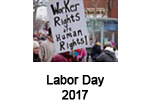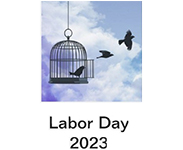An Attorney to Fight for You!
Affordable Rates
Point out positive facts in your favor
- Keep in mind the impression that you want to give to the judge is that you were a good hard worker, who was organized, conscientious and cooperative, that you did not want to lose this job, and that you are also sincere and honest.
- You do not need to show that you were a perfect employee, but you should attempt to show that you tried to do a good job (and that you were not looking to get fired).
- In part you can show your positives by your demeanor during the hearing. But you will also need facts to support you on this.
- While during the hearing the direct facts regarding the claimed misconduct incident will be addressed, if you permit the hearing to just be about that narrow window then you are doing yourself a great disservice – as you undoubtedly had many positives during your employment that will not come out if that narrow window is all that the judge hears.
- But note: the judge does not want you to go on and on as to your positives, as the judge may very well believe that you are trying to avoid the facts regarding the alleged misconduct incident. Your goal should be to give the judge just enough to have a more accurate view of your good employment as a whole.
- Some of the main positives that you generally may want to get across during the hearing (again, as mentioned above, this is not to be applied rigidly) are as follows:
- you had received no written warnings during your employment (or at the least no written warnings for many years);
- if you had received written warnings, that the written warning(s) were for something unrelated to the alleged misconduct herein (i.e. claimed misconduct was for insubordination, while the only written warning was for attendance);
- that you had a long employment (i.e. – at least 5 years, and the longer the better). While this will generally be shown by the introductory questions of the judge to the Employer, I find that it is a good idea to emphasize it during the hearing, and thereby reinforce it in the judge’s mind.
- that you had repeatedly received positive reviews. This may very well not appear too relevant to the judge, and so you need to be careful if you introduce this issue, but positive reviews show that you were a good employee not someone who engages in misconduct. One way that good reviews would be more relevant is if the review was very recent (within a couple months of termination), with the review from the Employer saying positive things about you that are in direct contrast to the bad conduct that the Employer is now claiming you engaged in.
- During the hearing the Employer may testify as to a claimed policy of the Employer, and that you allegedly violated that policy.
- If the Employer’s claimed policy was not said/ presented to you during your employment then this should be pointed out to the judge – it is the Employer’s burden to show that you were aware of this policy, and if you weren’t aware of the policy then they haven’t met this important burden. If you do not tell the judge that you were not aware of/ weren’t informed of this policy, then the judge may incorrectly believe that you were aware of it.
- If the Employer’s claimed policy was not in writing then this also should be pointed out to the judge, as an unwritten policy is more difficult for the Employer to prove it had and more difficult for the Employer to prove what you were informed of (maybe you were informed of part of the policy, but not all, and that your conduct did not violate what you had been informed of).
- During the hearing the Employer/ Employer’s witness very well will testify about things they did not personally see/hear (e.g. – claiming that you swore at, or hit, another employee who is not testifying).
- During the hearing it is very important – and frequently critically important – to point out to the judge that the Employer’s witnesses did not personally see/hear what they are testifying about. Such testimony generally is considered “hearsay”, and while it generally is admissible during unemployment hearings such non-first-hand testimony is usually given much less weight than first-hand testimony from witnesses who actually saw/heard the incident (such as yourself).
- If you do not point out that the Employer/Employer’s witness did not personally see/hear the claimed incident that they testified about (and frequently the Employer’s witness is not going to offer on their own to the judge that they do not have first-hand knowledge) then the judge may incorrectly believe that the Employer’s witness was there – which incorrect belief by the judge would very much be to your detriment.



















